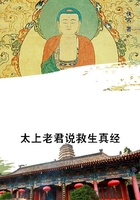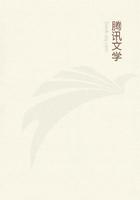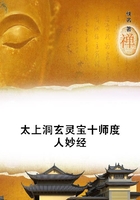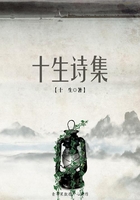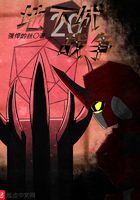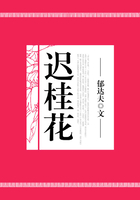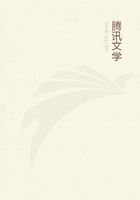The family is older than humanity, and therefore cannot be called a human institution. A post office, now, is wholly human; no other creature has a post office, but there are families in plenty among birds and beasts; all kinds permanent and transient; monogamous, polygamous and polyandrous.
We are now to consider the growth of the family in humanity; what is its rational development in humanness; in mechanical, mental and social lines; in the extension of love and service; and the effect upon it of this strange new arrangement--a masculine proprietor.
Like all natural institutions the family has a purpose; and is to be measured primarily as it serves that purpose; which is, the care and nurture of the young. To protect the helpless little ones, to feed and shelter them, to ensure them the benefits of an ever longer period of immaturity, and so to improve the race--this is the original purpose of the family.
When a natural institution becomes human it enters the plane of consciousness. We think about it; and, in our strange new power of voluntary action do things to it. We have done strange things to the family; or, more specifically, men have.
Balsac, at his bitterest, observed, "Women's virtue is man's best invention." Balsac was wrong. Virtue--the unswerving devotion to one mate--is common among birds and some of the higher mammals. If Balsac meant celibacy when he said virtue, why that is one of man's inventions--though hardly his best.
What man has done to the family, speaking broadly, is to change it from an institution for the best service of the child to one modified to his own service, the vehicle of his comfort, power and pride.
Among the heavy millions of the stirred East, a child--necessarily a male child--is desired for the credit and glory of the father, and his fathers; in place of seeing that all a parent is for is the best service of the child. Ancestor worship, that gross reversal of all natural law, is of wholly androcentric origin. It is strongest among old patriarchal races; lingers on in feudal Europe; is to be traced even in America today in a few sporadic efforts to magnify the deeds of our ancestors.
The best thing any of us can do for our ancestors is to be better than they were; and we ought to give our minds to it. When we use our past merely as a guide-book, and concentrate our noble emotions on the present and future, we shall improve more rapidly.
The peculiar changes brought about in family life by the predominance of the male are easily traced. In these studies we must keep clearly in mind the basic masculine characteristics: desire, combat, self-expression--all legitimate and right in proper use; only mischievous when excessive or out of place. Through them the male is led to strenuous competition for the favor of the female; in the overflowing ardours of song, as in nightingale and tomcat; in wasteful splendor of personal decoration, from the pheasant's breast to an embroidered waistcoat; and in direct struggle for the prize, from the stag's locked horns to the clashing spears of the tournament.
It is earnestly hoped that no reader will take offence at the necessarily frequent, reference to these essential features of maleness.
In the many books about women it is, naturally, their femaleness that has been studied and enlarged upon. And though women, after thousands of years of such discussion, have become a little restive under the constant use of the word female: men, as rational beings, should not object to an analogous study--at least not for some time--a few centuries or so.
How, then, do we find these masculine tendencies, desire, combat and self-expression, affect the home and family when given too much power?
First comes the effect in the preliminary work of selection. One of the most uplifting forces of nature is that of sex selection. The males, numerous, varied, pouring a flood of energy into wide modifications, compete for the female, and she selects the victor, this securing to the race the new improvements.
In forming the proprietary family there is no such competition, no such selection. The man, by violence or by purchase, does the choosing--he selects the kind of woman that pleases him. Nature did not intend him to select; he is not good at it. Neither was the female intended to compete--she is not good at it.
If there is a race between males for a mate--the swiftest gets her first; but if one male is chasing a number of females he gets the slowest first. The one method improves our speed: the other does not.
If males struggle and fight with one another for a mate, the strongest secures her; if the male struggles and fights with the female--(a peculiar and unnatural horror, known only among human beings) he most readily secures the weakest. The one method improves our strength--the other does not.
When women became the property of men; sold and bartered; "given away" by their paternal owner to their marital owner; they lost this prerogative of the female, this primal duty of selection. The males were no longer improved by their natural competition for the female; and the females were not improved; because the male did not select for points of racial superiority, but for such qualities as pleased him.
There is a locality in northern Africa, where young girls are deliberately fed with a certain oily seed, to make them fat,--that they may be the more readily married,--as the men like fat wives. Among certain more savage African tribes the chief's wives are prepared for him by being kept in small dark huts and fed on "mealies' and molasses; precisely as a Strasbourg goose is fattened for the gourmand. Now fatness is not a desirable race characteristic; it does not add to the woman's happiness or efficiency; or to the child's; it is merely an accessory pleasant to the master; his attitude being much as the amorous monad ecstatically puts it, in Sill's quaint poem, "Five Lives,"
"O the little female monad's lips!
O the little female monad's eyes!

